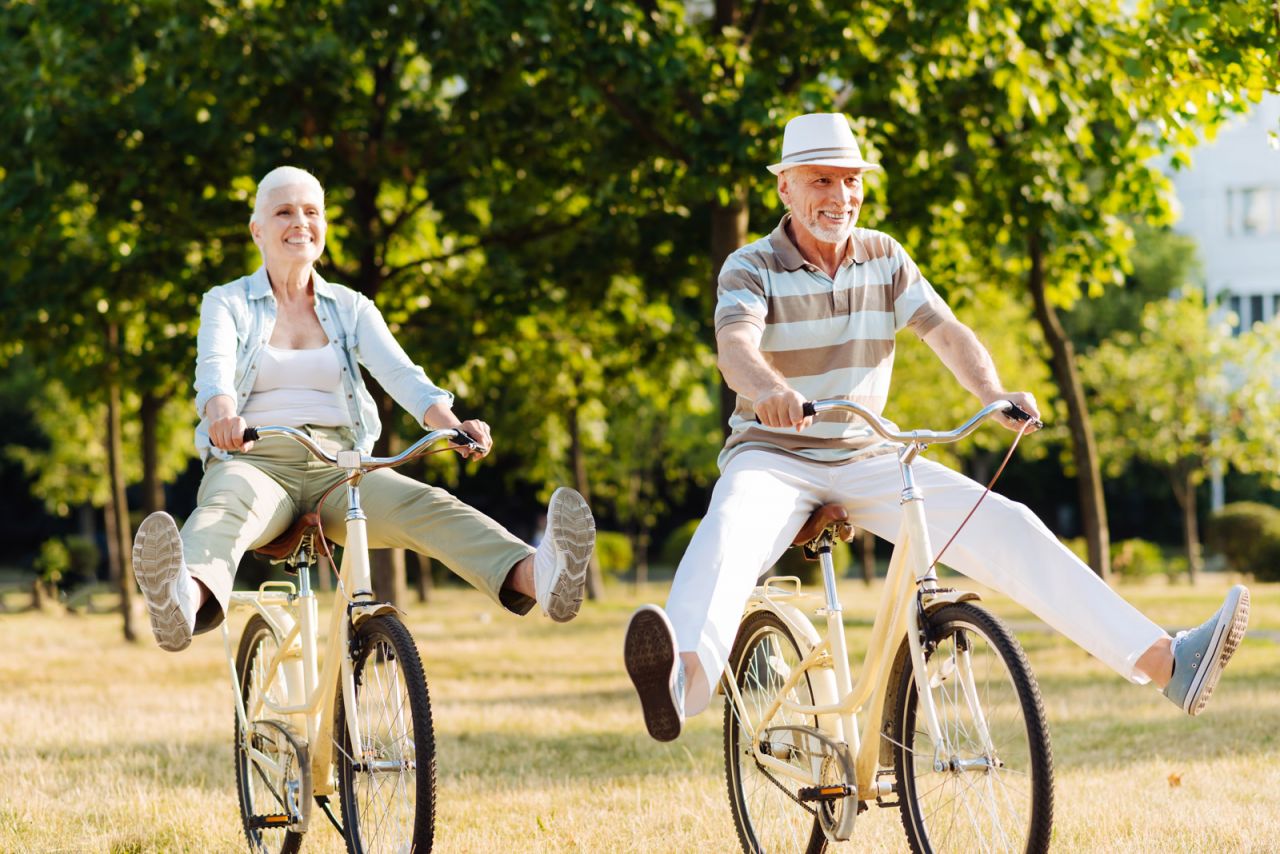Healthy Ageing
Maria Puntí, author of 'La pirámid’, is an owner of many health consultancy clinics. She is also an amazing author and an ageing specialist. She has written books based on what she had studied and worked on her whole life. These books include the topics of your body and mind as well as nature.
Often, due to too much information, or because that information is not very specific or reliable, it becomes complicated to know how to take care of oneself. In order to achieve healthy ageing, it is essential to have a clear understanding of the order of priorities regarding care.
She says - “The main goal of microbiota knowledge is to help people learn how to take care of themselves in order to live longer, in the best conditions.
The main reason is to help the reader make decisions about their health in a coherent way. In my patients, I often observe that, faced with the overexposure to so much information, often contradictory and poorly contrasted, they don't know where to start or what to prioritise when making decisions about their care. This causes them stress for 'not doing everything perfectly'. That's why, although I believe that nutrition, physical exercise, and mental health are equally important, I have established a priority pyramid.”
What are the main concepts we should consider to achieve healthy ageing?
When we talk about healthy longevity, we seek to take actions to ensure that our cells maintain a strong, fluid cell membrane, allowing for the proper exchange of molecules, and above all, protecting the stability of DNA at all costs, as we do not want genes that should remain silenced to be expressed. To achieve this, we need to keep chronic inflammation and oxidative stress under control.
How do both factors - chronic inflammation and stress - affect the way we age, and how can we control them?
An inflamed gut and body means that our brain will suffer the consequences. That is not favourable for the prevention of neurodegenerative diseases. To control this state of chronic inflammation, we must consider some triggers such as chronic stress, a pro-inflammatory diet, inappropriate body composition, and chronodisruption. As mentioned by the renowned psychologist Kelly McGonigal, “what matters is not the stress itself, but how we experience and manage it”. In the book, I place special emphasis on mental health, the first pillar, and what we can do to regulate our nervous system. Also, on how to build our healthy plate and what exercise to do to improve our body composition, to maintain an optimal fat percentage and have a good muscle mass. This will predispose us to have lower levels of inflammation, stronger bones, a more effective immune system, and undoubtedly, will make us feel much better mentally.
Some of the longest-living regions in the world are Okinawa, Loma Linda, Ikaria, Sardinia, and the Nicoya Peninsula. The characteristic that they all share is the importance of tribe, of social connections. The population in these regions places great importance on strong social relationships and close community ties. Of course, they also share strong spiritual beliefs that provide them with inner peace and a sense of purpose and promote a greater sense of community. Humans are highly social animals, needing to connect with others. It's not a whim, it's a basic need: feeling cared for by others, being part of a group, and taking care of each other is key to giving meaning to our existence.
Interestingly, they do not follow any specific diet. Besides, of course, avoiding highly processed foods, the Blue Zones base their diet on plants, with a moderate consumption of meat (non-existent in some areas), fish, eggs, fruit, whole grains, nuts... That's why I am not in favor of strict diets or a longevity diet. No matter how well we eat and exercise, if our life lacks a purpose, it will be very difficult to enjoy good overall health.
Currently, there are two types of people: those who have no knowledge about nutrition and eat as if their body were a trash can, and others who are obsessed with calories and tremble if they eat a French fry. We must learn to navigate the grey areas, knowing that there are foods that, when consumed frequently, are associated with a higher predisposition to inflammation, such as hydrogenated fats found in ultra-processed food, excessive abuse of sugar in all its forms like fructose, syrups, or maltose, fried foods, and the overconsumption of processed meat. Although that does not mean that occasional consumption will kill us, we must be flexible.
Considering if we truly like the life we have. Without knowing what we want, how can we choose a job that brings happiness and avoids anxiety? How can we choose a partner that brings peace? Answering these questions is part of the journey to achieving healthy longevity.
What would be the best diet for healthy ageing?
The message is that there is no universal diet, and even less so an 'ancestral' diet. The human being who inhabited what is now Alaska during the Paleolithic era did not eat the same as the one living in Okinawa. Nor did the one living in what is now Nigeria eat the same as the one living in Norway.
Humans have adapted to what was available in their area and are very versatile animals, easily adapting to what is around them. While diets like the Atlantic and the Mediterranean have solid scientific evidence regarding their impact on good health, nutrition should be adapted to each person's needs and life stages.
It is true that some elderly people develop food intolerances, such as gluten or lactose intolerance. This could partly be attributed to a greater awareness and diagnosis of these conditions today. Studies have shown that the more frequent consumption of ultra-processed, low-fiber foods, especially rich in wheat, and the increase in obesity largely caused by sedentary lifestyles, combined with a greater use of medications such as antibiotics, have caused irreversible changes in our microbiota, making it less diverse. Less diversity is synonymous with poorer health. However, there is a modifiable aspect: the intestine has villi to increase the absorption surface. A pro-inflammatory lifestyle predisposes this surface to become inflamed and hyperpermeable, making it more likely for us to develop food intolerances.
Stress involves a chronic, persistent elevation of cortisol. This hormone has been key to human survival, as it puts us on alert, improves our reaction capacity, resilience, and ability to overcome challenges. However, having high levels for months on end depresses our immune system, inflames us, and constricts our blood vessels, predisposing us to a shorter lifespan and lower quality of life. How we face adversity and the decisions we make about our lives are therefore crucial. We often grow up thinking, “this is the life we've been dealt,” letting circumstances dictate our path without taking control.
For example, regarding the consumption of eggs, dairy, and meat, there is a lot of alarmism, often unjustified. There are also myths about the ketogenic diet or fasting, which, although they are dietary strategies that can be useful, for example in cases of epilepsy or prediabetes, are by no means the holy grail. Many people end up developing unjustified phobias of carbohydrates and eating disorders.
And how would that be achieved, what guidelines should be followed?
Start with more dietitians, psychologists, and sports and physical activity professionals in public healthcare. One in four hospitalised patients in Spain is at risk of malnutrition, a percentage that increases to 37% for patients over 70 years old. Hospital nutrition is crucial: if a hospital serves Maria biscuits and Cola-Cao, how will the population understand the importance of avoiding processed foods if those who are supposed to care for them do not give it any importance?
What would be your main recommendations for readers who want to improve their quality of life and promote longevity and healthy ageing?
Let them start loving themselves more, and others as well. If you don't treat yourself as an ally, if you're constantly fighting against yourself, without allowing yourself to rest, set boundaries, nourish your body for proper organ regeneration, and without giving movement and love to your body, how do you expect it to support you for life? Let's not see pain or illness from hatred and anger towards your body, but from the perspective of “what can I do to help you, body?” Self-care is the first step to enjoying good health.
Add a change in habits each month, don't try to always do everything perfectly from the start, because it's impossible.
Start with replacing processed food for eating clean pure food straight from mother nature.










